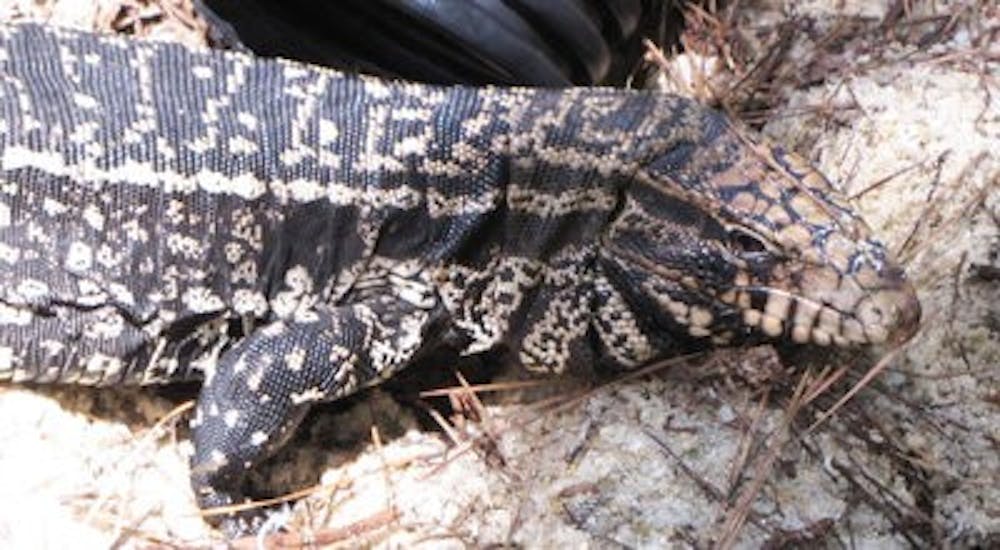An invasive lizard species known as the Argentine black and white tegu,or Tupinambis merianae, may be coming to Alabama, and University researchers want to know if the creatures are capable of thriving in the state's climate.
David Steen of the Alabama Natural Heritage Program heads the project.
Steen said the primary concern is the potential harm the non-native lizards could pose on native wildlife and other sensitive species over time if they can reproduce and survive in Alabama environments the way they have in Florida.
Steen said the project originated through a conversation with one of his friends from the United States Geological Survey.
The study uses 19 tegus captured in southern Florida set up in individual semi-natural fiberglass enclosures outdoors, which are maintained by Craig Guyer, professor of biological sciences.
According to Guyer, the enclosures are set up to accommodate the lizards as much as possible, with sandy soil, deep burrows where they can overwinter, constant access to water and objects to climb in and on when they are active outside the burrows.
"We expect them to survive through winter and, if they do, we will place adult males and females together to determine whether they are capable of reproducing this far north," Guyer said. "There is no native lizard that fills the ecological role that tegus fill."
But Steen said their survival comes with some concerns.
"The issue is that tegus can cause environmental problems," Steen said. "They're big predators of reptile eggs, bird eggs. Tegus are not only carnivorous, but they eat vegetation as well. If there was a large established population, they could cause problems for some farmers' vegetables."
Jack Kottwitz, graduate student in Auburn's College of Veterinary Medicine, served as exotic animal and zoo and wildlife veterinarian.
Kottwitz planned the anesthesia protocol and assisted in the surgical implantation of radio tracking and temperature monitoring devices into the tegus. Kottwitz also addresses follow-up medical care after the procedure, as well as additional medical concerns that may arise over the course of the study.
Kottwitz said there has been speculation over the last few years as to how far north the climate will allow non-native species to thrive and reproduce before conditions become too severe.
"Computer models have made some concerning predictions, but this study represents one of the first attempts to actually test reproduction in the environment of concern," Kottwitz said. "We are doing something very unique here at Auburn University, something that will give much more information than assumptions made based on a computer model."
Do you like this story? The Plainsman doesn't accept money from tuition or student fees, and we don't charge a subscription fee. But you can donate to support The Plainsman.





